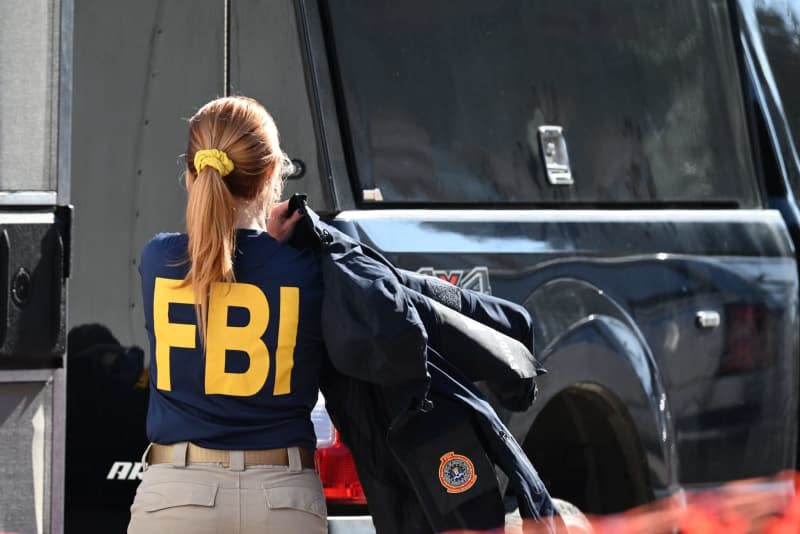The US Federal Bureau of Investigation (FBI) on Friday said the attacker in the New Orleans car ramming tried to destroy evidence before killing 14 people in a terrorist attack in the southern US city on New Year’s morning.
Separately they also confirmed that the Las Vegas Tesla Cybertruck explosion in front of a hotel owned by President-elect Donald Trump was the result of a suicide and that the two incidences had nothing to do with each other.
In the New Orleans incident, materials for bomb-making, among other items, were secured in a rented accommodation, the FBI and the Bureau of Alcohol, Tobacco, Firearms and Explosives (ATF) announced.
Advertisement
Advertisement
The attacker attempted to destroy that evidence by starting a small fire in the hallway, the ATF said. He spread accelerants around the house to destroy evidence of his planned attack, but before the fire could spread to other rooms, it extinguished itself, the authorities said. By then the man had already left the building.
The ATF later determined that the identified attacker, Shamsud-Din J, was the only person who could have had access to the location when the fire was set.
On Thursday the FBI said the attacker had acted alone.
“As we’re being transparent, unfortunately, there is some information that we have to go back and correct,” Christopher Raia, FBI deputy assistant director, told a press conference. “We’re confident at this point that there are no accomplices.”
Advertisement
Advertisement
The police had previously said they were looking for possible collaborators. Dozens were injured after the suspect intentionally drove into a crowd of New Year’s revellers in New Orleans’ French Quarter.
No connection between New Orleans, Las Vegas events
The FBI also emphasized that there is currently no connection between the attack in New Orleans and the explosion of a Tesla Cybertruck outside the Trump Hotel in Las Vegas, which also occurred on New Year’s morning. The incidents occurred a few hours apart.
Both vehicles were rented from Turo, an online car hire company, and both men were in the military, but the connections end there, authorities said.
FBI, sheriff: Las Vegas incident was a suicide
The FBI also said on Friday that it had definitively identified the US soldier responsible for the Cybertruck explosion in Las Vegas and investigators are treating his act as a suicide.
Advertisement
Advertisement
More in U.S.
FBI investigator Spencer Evans acknowledged that though “this incident is more public and more sensational than usual, it ultimately appears to be a tragic case of suicide involving a heavily decorated combat veteran who was struggling with PTSD and other issues.”
Previously Las Vegas Municipal Police Department Sheriff Kevin McMahill told reporters that he is “comfortable calling it a suicide.”
It was difficult to identify the person because he was burnt beyond recognition, the FBI’s Evans said.
However, there are numerous indications that it is Matthew Alan L – a US soldier who also served in Germany, according to the sheriff. L had also served in Afghanistan and had shot himself in the head before the detonation of his vehicle, authorities said. Final confirmation could only be given after a DNA test.
Advertisement
Advertisement
McMahill said the 37-year-old had spent most of his time at the Fort Carson base in Colorado and in Germany. He had returned from Germany on an authorized leave, he added. L is originally from Colorado Springs.
The Cybertruck is an electric pick-up with a distinctive stainless steel body, built by the US electric car manufacturer Tesla, whose chief executive is Elon Musk.
The tech billionaire, who also owns the internet platform X, is considered a close adviser to Trump.

An FBI agent is seen outside a house on mandeville street, where bomb-making materials were found in connection with the New Orleans terror ramming attack. A fire broke out and bomb-making materials were found in a short-term rental property, where the man who killed at least 10 people in New Orleans early on New Year’s Day may have stayed before ploughing his pickup truck into a crowd. Kyle Mazza/TheNEWS2 via ZUMA Press Wire/dpa

Agents of the US Bureau of Alcohol, Tobacco, Firearms and Explosives (ATF) are seen outside a house on mandeville street, where bomb-making materials were found in connection with the New Orleans terror ramming attack. A fire broke out and bomb-making materials were found in a short-term rental property, where the man who killed at least 10 people in New Orleans early on New Year’s Day may have stayed before ploughing his pickup truck into a crowd. Kyle Mazza/TheNEWS2 via ZUMA Press Wire/dpa
EMEA Tribune is not involved in this news article, it is taken from our partners and or from the News Agencies. Copyright and Credit go to the News Agencies, email news@emeatribune.com Follow our WhatsApp verified Channel




